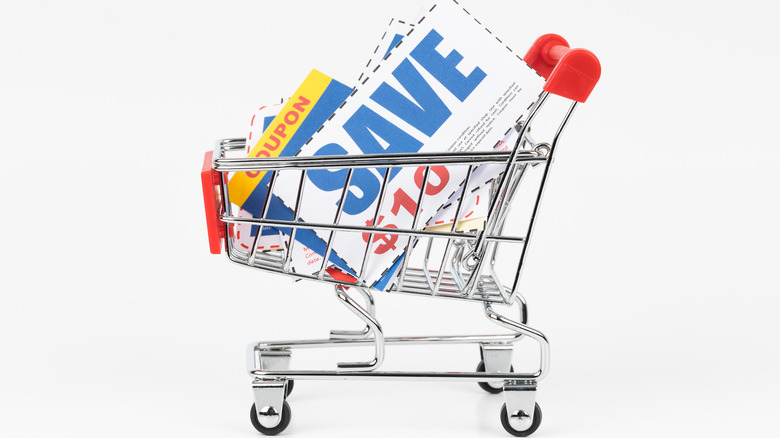Survey Reveals The One Thing Consumers Are Looking For In Food Purchases
When you go grocery shopping, you likely take a number of factors into consideration. For instance, if you are on a gluten-free diet, you look for items that don't contain gluten. If you're following a vegan diet, you're going to look for delicious plant-based meals. If you're allergic to tree nuts, you look for products that specify they have had no contact with tree nuts.
In addition to keeping in mind various dietary restrictions, you might also consider the price. For example, your kids might want name-brand cereal, but the off-brand version is more budget-friendly. You might also opt to purchase certain items in bulk to save some money, though it's important to note that there are many things you should never buy in bulk, like produce and coffee.
Another big consideration is the sustainability of what you're buying. For example, New Zealand Winegrowers has reached a major sustainability milestone in creating wines that are both organic and eco-friendly. According to The Guardian, other sustainable foods include grass-fed beef, locally-grown produce, and repurposed food waste.
Of course, all of these are important factors, but for some of us, they rank differently. The International Food Information Council (IFIC) recently conducted a survey to find out just how customers shop.
Americans value low prices over sustainability amid inflation crisis
Most of us already make our grocery shopping decisions based on price, choosing to buy sale items, bulk, or off-brand products — just keep in mind that some foods you should never buy generic. However, a recent survey shows that price now weighs more heavily on our minds than in previous years.
Per the IFIC's 2022 Food and Health Survey, concerns about sustainability have risen over the years, from 27% in 2019 to now 39%. Despite environmental worries, shoppers are currently more focused on saving money during the inflation crisis. Only 39% of survey respondents said they would buy the more expensive, more sustainable product, while 61% said they were willing to forgo sustainability to save money.
All that said, Food Dive notes that many shoppers look for a middle ground or a product that's somewhat eco-friendly while also being budget-friendly. In these trying times, it's clearer than ever that we need to reframe how we look at food, as a transformed food system could make the U.S. more food resilient in the future.

